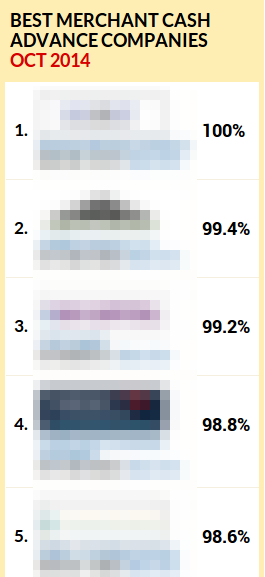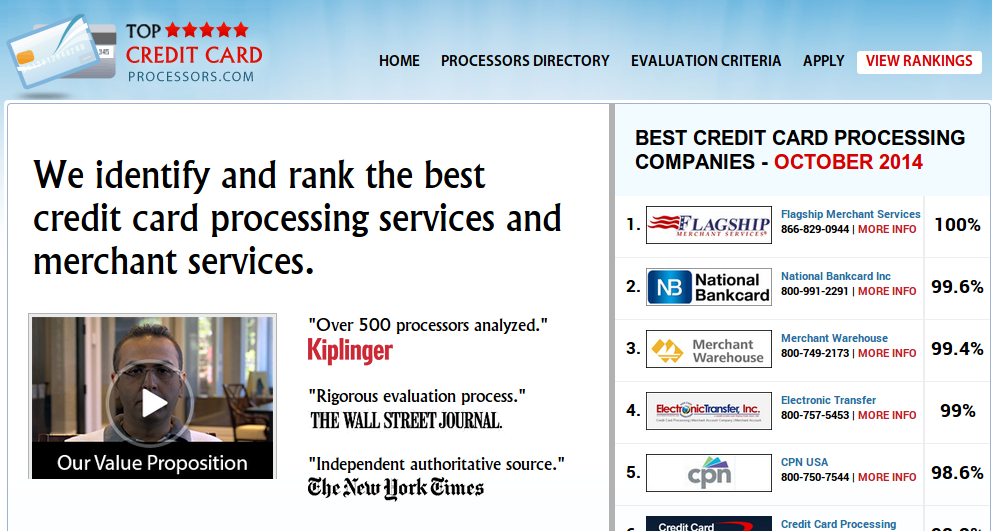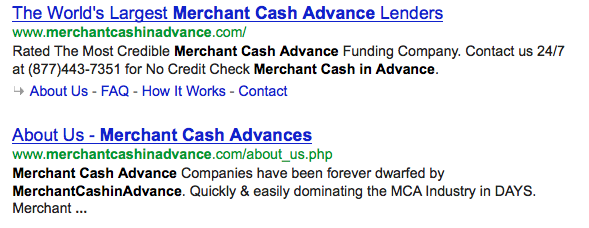Stories
“You Can’t Stay Static”: Paul Teitelman and the Building of an SEO Firm
June 30, 2019
 How does someone become an SEO expert? How does someone found a successful SEO consultancy firm? For Paul Teitelman, his road to SEO mastery and independence started by admitting he knew nothing about the industry.
How does someone become an SEO expert? How does someone found a successful SEO consultancy firm? For Paul Teitelman, his road to SEO mastery and independence started by admitting he knew nothing about the industry.
Beginning in the late noughties, following his graduation in Marketing Management from Dalhousie University, Teitelman went to an Interactive Advertising Bureau job fair, pitched himself to his soon-to-be boss, and replied, “No! But I’m your man. I’ll learn it all,” when asked if he knew anything about SEO.
Thus began his tenure at Search Engine People, one of Canada’s first Search Engine Marketing companies. Here he entered as a Link Ninja and learned the trade by implementing SEO campaigns for both Fortune 100 and 500 companies as well as for local businesses. From this, he advanced to a managerial position, in which he led teams of SEO specialists who were responsible for ensuring clients would appear at the top of Google search pages. And then, in 2011, Teitelman left Search Engine People to make his own way, becoming the CEO and founder of his self-titled, Toronto-based SEO consultancy firm.
How did the move to independence pan out? Well, as of June 2019 he has hired his 25th employee, his team is kept busy servicing the needs of clients, and he experiments with pioneering SEO strategies and theories within his own blog network. Claiming that his firm offers “the best of both worlds” as a result of him having worked on both ends of the SEO spectrum, Teitelman explains that clients benefit from his offering of the transparency, promptness, and directness that are inherent with small firms; and that he reaps the reward of an agency price tag, a perk that comes with producing consistently successful SEO work.
 When asked about how others could follow in his footsteps, he said, regardless of the industry, whether you’re an SEO expert or broker, that “you can’t stay static.” Emphasizing the necessity of having foresight when you leave your old job, Teitelman notes that entrepreneurs need to stay ahead of the curve of trends, be that an update to Google’s search result algorithm or a niche opening in the alternative finance market. As well as this, Teitelman highlighted the importance of being secure in that knowledge that when you leave to make it independently you will have a list of clients to take with you, who’ll keep you from leaving yourself high and dry.
When asked about how others could follow in his footsteps, he said, regardless of the industry, whether you’re an SEO expert or broker, that “you can’t stay static.” Emphasizing the necessity of having foresight when you leave your old job, Teitelman notes that entrepreneurs need to stay ahead of the curve of trends, be that an update to Google’s search result algorithm or a niche opening in the alternative finance market. As well as this, Teitelman highlighted the importance of being secure in that knowledge that when you leave to make it independently you will have a list of clients to take with you, who’ll keep you from leaving yourself high and dry.
And much like how the merchant cash advance scene in Canada has seen an increase in both interest and product knowledge amongst customers over recent years, as has SEO. Subject to myth-making and conjecture as a result of its technical lingo and specialized nature, SEO has long been the victim of misunderstanding according to Teitelman, who says those who are curious about the service “shouldn’t believe everything they read on the internet.”
Going on to say that “the more education customers get, the more exciting the industry becomes,” it’s clear that Teitelman is looking forward to the future of SEO. Time will tell if his offer back in 2008 will be matched by interested industries, curious about the possibilities that SEO promises and willing to “learn it all.”
Paul Teitelman is also speaking on a sales and marketing strategies panel at deBanked CONNECT Toronto on July 25th alongside Smarter Loans President Vlad Sherbatov and SharpShooter Funding Managing Partner Paul Pitcher.
Merchant Cash Advance SEO War Still Raging
October 9, 2014 The top ten merchant cash advance companies ranked on a review website must have earned their placements due to actual reviews, right? Not so, say rival online marketers who’ve claimed sites such as topcreditcardprocessors.com are really just part of an elaborate paid lead generation scam.
The top ten merchant cash advance companies ranked on a review website must have earned their placements due to actual reviews, right? Not so, say rival online marketers who’ve claimed sites such as topcreditcardprocessors.com are really just part of an elaborate paid lead generation scam.
Mark Jackson, a blogger and marketer, had alleged that a website known as TopSEOs.com had been using deceptive practices for years. Three weeks ago a former employee of TopSEOs.com emailed Jackson to offer damning information that his suspicions had been right. That included a list of 15 other websites related to TopSEOs.com that were running similar review schemes. All are apparently owned by an individual named Jeev Trika.
While I don’t know Trika or if the allegations are true, I do know from what Jackson wrote is that he forwarded the email chain and the website list to Google’s director of web spam, Matt Cutts. That included topcreditcardprocessors.com
In recent years, Google has taken aggressive action to de-rank and de-list sites engaged in bad behavior from their search index. One example of bad behavior is a site that provides a poor user experience. Deceiving users into believing that businesses had been reviewed and ranked accordingly is deceptive if the true model is just about who pays the most to get ranked the best.
In New York State, fake reviews can be a criminal offense. Just ask the 19 companies that were ensnared in a deceptive review sting last year, causing them to be hit with $350,000 in penalties.
In addition to credit card processors, topcreditcardprocessors.com also ranked merchant cash advance companies. What’s rough is that all of the websites Jackson submitted to Cutts have been de-listed from Google’s search index, indicating that Google likely concluded those domains violated their Terms of Service.
 Jackson pointed out that Trika, the mastermind behind it all, was already taking measures to get back up and running in Google’s search index by moving from TopSEOs.com to TopSEOsGlobal.com. Similarly, topcreditcardprocessors.com has already moved their content to topcreditcardprocessorsglobal.com. All their first page search rankings have been lost for now so that probably means fewer leads for many companies over the next few weeks.
Jackson pointed out that Trika, the mastermind behind it all, was already taking measures to get back up and running in Google’s search index by moving from TopSEOs.com to TopSEOsGlobal.com. Similarly, topcreditcardprocessors.com has already moved their content to topcreditcardprocessorsglobal.com. All their first page search rankings have been lost for now so that probably means fewer leads for many companies over the next few weeks.
Of course there are a few similar websites to topcreditcardprocessors.com that purport to review merchant cash advance companies. The risk if they’re shut down is not just a loss of leads but a potential loss of trust by search engines for anyone that paid to appear on them. Google treats sites participating in link manipulation schemes unfavorably and has expanded the scope of how these schemes are defined a lot in the last twelve months.
@financeguy74 I like the full-size Penguin in the doorway–I think we have one of those!
— Matt Cutts (@mattcutts) September 30, 2014
Unless you’ve been in a coma, Google’s Penguin algorithm specifically targets websites engaged in link schemes. It’s uncertain if paid links on review sites like these would be covered under Penguin, but Penguin’s 3rd major run is expected to roll out any day now.
Google’s director of web spam has a good sense of humor when it comes to Penguin jokes, but Cutts is known to be absolutely ruthless when he discovers actual terms of service violators in their index. Back in December, Cutts articulated that he wanted to break their spirits. As quoted on Search Engine Land, he said:
if you really want to stop spam, it is a little bit mean, but what you want to do, is sort of break their spirits. There are lots of Google algorithms specifically designed to frustrate spammers. Some of the things we do is give people a hint their site will drop and then a week or two later, their site actually does drop. So they get a little bit more frustrated.
Just emailing Cutts evidence of manipulation is enough to put offending sites out of business or at least out of reach from Google searchers. That is what Mark Jackson appears to have accomplished by forwarding an email chain referencing TopSEOs.com and other sites.
A screenshot of the home page of what is now topcreditcardprocessorsglobal.com below:

Review sites might be one way companies are generating leads online now, but check out some of my historical coverage regarding the war for Internet leads in this space:
Six Signs Alternative Lending is Rigged: Do Lending Club and OnDeck have a helping hand?
Google Penguin 2.1 takes swing at the MCA industry
Your merchant cash advance press release may be hurting you
Is Google your only web strategy?
The other 93% [of leads]
The SEO War for Merchant Cash Advance: The first story on this topic
Trading MCA for Mortgages
June 5, 2024 “I like multiple ways of getting business,” said Julio Sencion, Principal at Alta Financial. “If I did one thing and one thing only and that slows down, it affects my bottom line, so I like to keep my doors open for more opportunity and I think the ISOs should as well.”
“I like multiple ways of getting business,” said Julio Sencion, Principal at Alta Financial. “If I did one thing and one thing only and that slows down, it affects my bottom line, so I like to keep my doors open for more opportunity and I think the ISOs should as well.”
Sencion’s not funding MCAs today, he’s doing mortgages, a business he had been in for years prior to the Great Recession. In the early 2000s, he said that everyone wanted to be a mortgage broker, himself included when he got into it. Like many in that business at the time, the fallout of it all pushed him to seek out a new revenue stream and a product that was still in demand. By 2011 he and a partner were running a large MCA brokerage shop in New York with nearly 70 sales reps on the floor. Sencion liked the business but not necessarily the conversion rates on the leads he was buying. By his count only 2-3% of the leads would become a funded deal, a metric deemed too low in the industry era of yesteryear. Old habits die hard, however, because he couldn’t help but continue to think like a mortgage guy.
“We realized that we had a couple of different questions on our application, one of them was ‘Do you own real estate? Commercial, residential?’ 40 to 50% of our clients owned real estate, so because of that we spun off a division for commercial lending.”
By 2016 Sencion exited MCA and went back into traditional finance. He’s now a principal at Alta Financial, which not only does mortgages but has also found a unique niche to source borrowers from, MCA brokers.
“So let’s say for example you’re an ISO and the client says ‘yes, I own real estate’ I’ll be interested in looking at that product,” Sencion said. “Then you will click a link that we will give you, that link will open up the questionnaire and you will fill out that questionnaire and then my agent will receive that lead from that questionnaire with all the data in it.”
Referrals of this nature in the biz are not new, but perhaps the circumstances are. One of Sencion’s account managers, Jamie Schiff, is also a former MCA rep himself, and he’s found this business to be better.
“I think over the past a year and a half, from my perspective, I think the MCA space is just a bit saturated,” said Schiff. “There’s a million and one funders out there.”
The challenge with this different product, according to Schiff, is getting an MCA broker to wrap their mind around a deal that could take a month to close when they might be used to 2-3 days. But on the upside Alta Financial does all the work and they really just want a broker to qualify a lead and submit the details. If a loan closes the broker gets paid. Quite a number of MCA broker shops are already doing this with them, the company said. Once these files are in hand, they underwrite various factors including credit score of the borrower. While just about any kind of property could qualify except for gas stations, they said that multifamily properties are the most common they get.
“People will be surprised how many clients have real estate, not just a [primary home], but they own just a small multifamily down the road that they never touched or tapped into,” said Sencion. “So I think it’s important nowadays to have the ISOs ask the question because if they didn’t do the cash advance they could always flip this into a mortgage.”
While all of Alta’s loans are secured by real estate, they can look beyond the value of the asset by evaluating an applicant on the rental income they generate or look at the average revenue from their business bank statements and base a loan amount off of that. Naturally, the rates and terms are much more attractive than what’s available in the unsecured market. There’s also the added benefit of these products being able to work alongside an MCA or to buy out existing ones. It’s a commission a broker might not have gotten otherwise.
“I’m actually excited, it’s something different but it’s kind of the same,” said Schiff. “And it’s such a smaller space that I don’t have to worry about every other month 10 other new funders popping up…”
As for Sencion, he said that the barriers to entry are higher than the MCA business, between the education, state licensing, how to process the files, etc.
“It takes years to get to the level of where we’re at, to be able to underwrite, fund deals, sell to a secondary market,” said Sencion. “And I think that’s where the edge comes in, you can’t get a cash advance guy, no matter how big they are, to get into my space unless they team up with a mortgage company. No one’s out there trying to become a mortgage company anymore like it was back then.”
Who Needs The Merchant Cash Advance Keyword Anyway?
May 31, 2022 Almost five years since Google banned its search engine from displaying ads when queries contain the phrase “cash advance,” the loss of business attributed to that has probably been nil to the small business finance space.
Almost five years since Google banned its search engine from displaying ads when queries contain the phrase “cash advance,” the loss of business attributed to that has probably been nil to the small business finance space.
According to Google, despite there being between 100,000 to 1 million searches for “cash advance” each month on average, only 1,000 to 10,000 searches per month are specifically for “merchant cash advance.”
People are ~10x more likely to search for business line of credit, business loan, working capital, or business credit card, according to Google’s estimates.
This is somewhat in line with findings from the Federal Reserve, whose recent study determined that 7x more business owners seek out a loan or line of credit than they do a merchant cash advance.
But putting that aside, the ban on paid advertising for all things cash advance has had an upside for some lucky companies. Without ads, Google has inadvertently (or maybe intentionally) elevated funding providers that are local to the searcher to the top of the organic results. That means listings on Google Maps that contain keywords matching the search queries are reaping the benefits of being prominently placed at the top of the page and are potentially capturing all the clicks along with it. The end result is an old-fashioned SEO war to win what few searches there are.
Compare that to a search for sba loan where paid advertising is fair game. In the era of PPP and EIDL, it’s perhaps no surprise that there are between 100,000 to 1 million searches per month for that keyword on average. Many of those searchers will probably not be eligible for an SBA loan so perhaps the next best fit would be equipment leasing or invoice factoring, two queries that are on par with merchant cash advance in average monthly searches, meaning volume is relatively low.
But how does low search volume turn into the large volume of funding originated? Well, another factor has changed since Google implemented the cash advance advertising restriction in 2017, and that is that Google is not as relevant as it used to be. Business owners are more likely to discover a potential capital source from social media or a fintech platform they already have a relationship with than ever before. According to a recent study, 25% of people claimed they had actually used either Alexa, Siri, or another voice assistant to find information about financial services, signaling a major departure from how traditional searching used to be conducted.
All of which means that the paid advertising restriction on a niche keyword on Google is unlikely to make any kind of difference in the big picture. Odds are you might not have known this restriction even existed. Bing, on the other hand, has no qualms with cash advances and allows paid advertising on it.
Could Siri, Alexa, and Video be the New Frontier for Lenders?
January 25, 2022 The annual fintech study published by Smarter Loans revealed that 25% of respondents had used either Alexa, Siri, or another voice search to find information about financial services.
The annual fintech study published by Smarter Loans revealed that 25% of respondents had used either Alexa, Siri, or another voice search to find information about financial services.
Voice devices, it appears, are not only getting better at answering regular questions, but users are also getting more comfortable even asking them in the first place.
“Alexa, what is deBanked?” for example, returns an accurate reply despite our not having made any efforts to opt-in to the device’s knowledge base. Alexa just knows.
So why bother performing an old-fashioned Google search? Turns out, it’s becoming less common to do. Only 57% of respondents said they discovered the lender they applied with through online search. 13% said they discovered them through social media. 8% came from a friend’s recommendation. 15% found them through a well-regarded “Loan & Financial Directory” (Smarter Loans, who authored the study).
Once on a lender website, users had questions. 27% read online articles and reports, 37% read reviews, 16% called the company, and 9% consulted a friend or family member.
60% of respondents said informative videos about a company or its products would increase their confidence in that company. That could be key since 66% of respondents said that they researched more than 3 lenders before applying for a loan.
All of the respondents resided in Canada. 92% of respondents also said that they were satisfied or very satisfied with their loan provider.
Lenders Love One-Man Broker Shops, Rookie Broker Finds
January 5, 2022 “After meeting so many people at the Broker Fair in New York City, I was like, ‘you know what, now is the time for it. I’m young, so let’s take the risk and start my own company.’”
“After meeting so many people at the Broker Fair in New York City, I was like, ‘you know what, now is the time for it. I’m young, so let’s take the risk and start my own company.’”
Matt Dolecki, a 23-year old entrepreneur who owned and sold two businesses before he graduated high school, is taking the young hustler’s mindset to the alternative finance world. Just this week, Dolecki started his own brokerage; dubbing it Opulent Capital.
Although Dolecki wants to start funding deals immediately and create relationships across the space, he is aware that he needs to also focus on honing in on the foundations of his business if he wants true success.
“I think a lot of people when they enter this space try to grow too fast and too big too quickly,” he said. “I’m not here to grow extremely fast or extremely big. I’m here to establish a well-rounded company and not tarnish my work just trying to grow fast.”
After interning at a funding company after college and subsequently working for a commercial collections agency, Dolecki believes his experience seeing all sides of the process will set him aside from other brokers.
“I have enough knowledge and information for the merchant to not just broker them the deal, but inform the merchant and let them know exactly what they’re getting, what’s possible for them, and what’s the better option,” Dolecki said.
“I have the debt collection side, and I’ve worked in [small business funding], so I have a really well rounded knowledge of how this whole thing works. If someone were to default, I know exactly which way to go. I can guide the lender on exactly which way to go, I have all the contacts on both sides, lenders and brokers, as well as many debt collections agencies. So I can help lenders not only get business, but retain business and get back lost revenue.”
Not only is Dolecki confident that his experience will set him and his company aside from competitors, he also believes his strength in numbers, or lack of, will allow him to operate a smooth show.
“I’m a one man shop,” said Dolecki. “I’ve talked to a lot of lenders, and they like the idea of having one person to deal with. Information is directly to the source, directly to me and directly to the merchant. It’s an easier form of communication. Every lender I’ve talked to agrees that 90% of their best selling ISOs are one man shops.”
When speaking on creating an image for his company from the merchant’s perspective, Dolecki spoke extensively about different types of marketing. He says that a strategy seemingly based on the business owner’s age can determine what type of communication should be used to pitch that particular merchant.
“If you are trying to reach out to small business owners over the age of 60, most likely a call will be more beneficial rather than investing in marketing or SEO,” said Dolecki. “Now there are so many young business owners who all love technology and doing things online, so building a platform where you can use fintech to apply for loans and search different loan options would be much more beneficial to the younger business owners.”
“I think a good mix of using fintech, algorithms, and tech, but also cold calling and [even] reaching out by mail is an effective way of trying to find that perfect mix of using both types of merchants.”
Dolecki has received support from other brokerages in the industry and claims without help, he would never be in the position he is now.
“Shout out to Porsha and Mercedes Brooks at Brooks Partners Finance,” said Dolecki. “They’ve really been a big mentor for me starting out, and helping me to get the ball rolling. I’m now calling merchants, signing on as an ISO with different lenders, and still just getting started.”
New gTLD Domain Extensions... new gtld domain extensions among the over 300 new gtld's, several are available to utilize for an extension of your main corporate web site, for radi... |
What are the real benefits of a tax free fees on a Merchant Cash Advance?... i work with a company called www.newvisionfunding.com and i am doing an seo campaign. i know what the tax benefits are, but i want to be able to incor... |

Cyber Week Linux Hosting Special... seo experts believe in utilizing a multitude of domain names that will enhance your exposure within search engines & directories., , for those that want to utilize organic seo techniques we are offering two bulk hosting packages., , 100 hosting packages @ $39.00 = $3900.00, 50 hosting packages... |
See Post... seo before google & bing & netscape was the browser outside of aol :), , , , what were you ranking for?, , , , , , , , , , , , , , , , , , , www.uccradar.com- any map, any city, we can spot them... |
See Post... seo before google & bing & netscape was the browser outside of aol :)... |



 Internet marketing became exponentially popular in the MCA space just in the last twelve months mainly due to the seemingly low cost and reported success by online lead generation companies. For small to mid-sized ISOs, spending $100 on a website with Godaddy and trying to get the site ranked organically just seems so much easier and cost effective than surrendering to the expenses of hiring telemarketers, renting office space, running mailer campaigns, billboards, radio/tv ads, hiring multiple salespeople, and buying leads.
Internet marketing became exponentially popular in the MCA space just in the last twelve months mainly due to the seemingly low cost and reported success by online lead generation companies. For small to mid-sized ISOs, spending $100 on a website with Godaddy and trying to get the site ranked organically just seems so much easier and cost effective than surrendering to the expenses of hiring telemarketers, renting office space, running mailer campaigns, billboards, radio/tv ads, hiring multiple salespeople, and buying leads. Let’s admit it, we’re all at war. If you’ve uttered the terms Panda, PageRank, Backlinks, or Organic in the last few months, you know what we’re talking about. We didn’t choose this fight, Google forced it upon us. And so after a long day of phone calls and handshakes about affordable working capital, we return to our homes at night and search the web. Not for information of course, but to find out where our company website pops up when we Google the phrase: Merchant Cash Advance or other relevant terms. Today we ask, is the fighting worth it?
Let’s admit it, we’re all at war. If you’ve uttered the terms Panda, PageRank, Backlinks, or Organic in the last few months, you know what we’re talking about. We didn’t choose this fight, Google forced it upon us. And so after a long day of phone calls and handshakes about affordable working capital, we return to our homes at night and search the web. Not for information of course, but to find out where our company website pops up when we Google the phrase: Merchant Cash Advance or other relevant terms. Today we ask, is the fighting worth it?




























